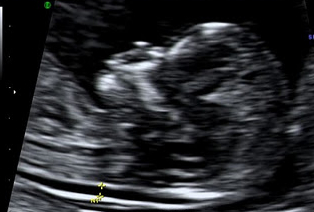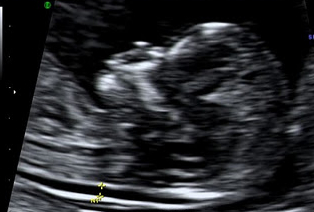- HubPages»
- Health»
- Women's Health»
- Pregnancy
What is Nuchal Translucency(NT) Test?

When is the right time to get pregnant?
Every expecting mother desires to have a physically and mentally healthy baby. But with increasing stress factors in life,a highly competitive environment, a race to being the best as well as men and women sharing equal responsibilities of life, the plan to start a family is generally delayed.
Planned pregnancies are thus on an increase compared to the unplanned ones. Also with increasing knowledge about the whole process of conception, the exact fertile period, day of conception as well as the date of delivery can all be preplanned and worked on accordingly. This has made major life decisions much planned.
Average Age of New Mothers Has Increased
A lot of all this planning has led to an increase in the average age of marriage and thus the average age of new mothers especially in western countries like U.S. Recent clinical studies and researches have shown that those women who postpone their childbearing to later ages (more than 35years) pose some extra risks for themselves as well as their babies.
Some of these include infertility, miscarriage, gestational diabetes, pre-eclampsia or eclampsia, bleeding problems, multiple babies,physical or mental growth retardation of the baby, premature/preterm delivery, stillbirth, increased chances of C-section, chromosomal abnormalities in the baby etc.
Because of all this problems,a number of prenatal screening and diagnostic tests have been developed to test for certain conditions or diseases in the embryo or the developing fetus even before it is born.

CVS and Amniocentesis
The prenatal tests administered may be invasive or non-invasive ones. The invasive methods require inserting of needles or probes into the uterus, can be performed only after 10-14 weeks of pregnancy and may impose a certain amount of risk on the developing fetus.
Various non-invasive methods like examination of the woman's womb by sonography, screening of maternal serum, genetic screening ultrasound etc. are relatively free from these side-effects and easier to perform.
Due to these reasons, a non-invasive test like early ultrasound is performed first and if any incresed risk of genetic or chromosomal abnormality is detected, further invasive tests are performed for acquiring further information.

Nuchal translucency (NT Scans)
A nuchal translucency scan is a type of non-invasive ultrasound screening technique performed to identify and detect the risks of chromosomal defects particularly in older women who are at a higher risk of having such babies.
This scan is typically performed between 12-13.5 weeks of gestation as the accuracy is considered the best during this period, but however it may vary slightly depending on the baby's growth as well as the level of maternal obesity. This is not the time to find out the gender with any real accuracy.
Along with the NT scan, you will have to have some blood work done to get the accuracy of the test of 90 to 93%.
The ultrasound performance of this test can be a bit of a challenge. The fetus has to be in a perfect position and the visualization of the fetus has to be optimal. It can be done but there are times when a patient might have to come back another day or depending on the position of the fetus, the ultrasound technician may think that a transvaginal ultrasound may be of use.
Regardless, the results will be worth the hassle. Especially since this test is not invasive.
- Early Pregnancy Ultrasounds
The reasons for doing early pregnancy ultrasounds and how they are performed. Early ultrasounds performed for bleeding or pain during pregnancy. Having transvaginal ultrasounds for optimal visualization of an early gestation fetus. - Pregnancy Ultrasounds
Different types of pregnancy ultrasounds including, early ultrasounds, nuchal translucency, 20 week ultrasounds and more.. - Home Ultrasound Machines- Portable Ultrasound Therap...
Home ultrasound machines are an excellent way to treat injuries, aches and pains. They are safe and affordable as well as simple to use find out details in the full article.
What Does it Test For??
The nuchal translucency test is based on the fact that the fluid collection in the region of fetal neck just beneath their skin which is normally present and seen in all fetuses in early pregnancy is increased in fetus who have some chromosomal abnormality like a trisomy (an extra copy) of chromosome 21 commonly known as Down's syndrome.
During this procedure the sonographer first moves the transducer across the stomach to determine and measure the CRL (crown-rump length) of the baby for accurate estimation of the fetal age and will then locate and measure the nuchal fold thickness.
The measurement must be specific with the fetus in the sagittal section and its neck in a neutral position(not extended or hyper-flexed) and no spine showing in the image. The nasal bone must also be seen correctly in the image.
The nuchal fold thickness is generally <2mm at this time. If it is increased to >2 mm, the risk of abnormality is increased. This increased thickness is found not only in Down's syndrome but also other conditions like trisomy 13, trisomy 18(Edward's Syndrome) and Turner's syndrome.
How Accurate is the Nuchal Translucency Test?
Only about 85-90%% of the trisomic fetus will be having a large nuchal thickness. According to the American Academy of Family Physicians, the NT screening test has an accuracy rate of 85-90%%.
One of the clinical study reports that the nuchal translucency scan help to detect about 90% cases of Down's syndrome, 75% cases of trisomy 18 and has a false positive rate of about 3.3%. Also as it is just a screening test, it does not help to confirm any diagnosis but when used in combination with other data like certain maternal blood tests(Quad screen)and population studies help to provide a better likelihood of the presence of the disorder.
This data can also be used by the doctor and parents to decide to opt for certain invasive tests like amniocentesis to reach the confirmed diagnosis at 100%.
Once a genetic disorder is confirmed through these tests, the choice of either continuing or terminating the the pregnancy depends on the parents as at present there are limited to no treatments or cures for these conditions.
If however one decides to have the baby then they should start to plan for the child with special needs, begin addressing the anticipated life style changes as well as identify and reach out to related support groups and other resources.




